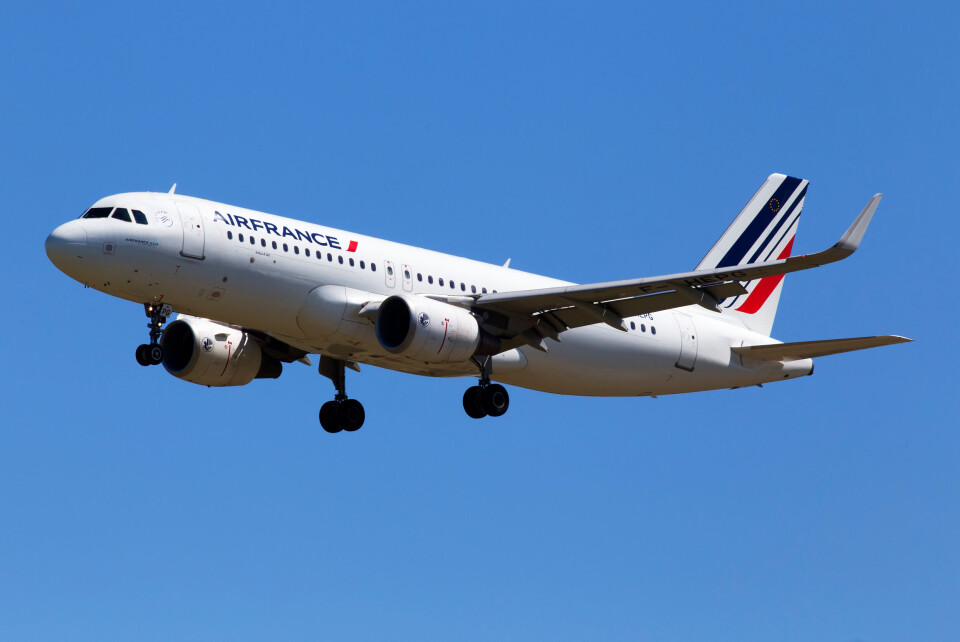-
French crisps brand gains global attention after Dua Lipa post
Singer posted photo of her shopping basket and the only food items were Brets crisps in braised chicken, honey mustard, and ‘Fromage du Jura’ flavours
-
Why supermarkets are urging shoppers to buy French leeks
Try our French classic leek vinaigrette recipe
-
New bill targets skiers under influence of alcohol or drugs
There are not currently any specific rules on skiing while under the influence
Airbus and Air France cleared over plane crash that killed 228 people
‘All that remains … is despair, dismay and anger,’ said an association representing relatives of the crash victims

French flag carrier Air France and Franco-European plane manufacturer Airbus have been acquitted of manslaughter in connection with the 2009 Rio-Paris crash that killed 228 people.
The two companies were on trial for the charges of involuntary manslaughter (homicides involontaires).
But on Monday (April 17), the Paris correctional tribunal said that even if “errors” had happened, no “certain link of causality…could be proven”.
Both Air France and Airbus had pleaded not guilty to the charges in the case, which lasted from October 10 to December 8, 2022
The crash of flight AF447 is the deadliest in French airline history, killing 216 passengers and 12 crew. Those killed included people of 33 nationalities, including 72 French people and 58 Brazilians.
The court case centred on the aircraft’s Pitot tubes, which measure its speed. Technical experts used information from the plane’s black boxes (which were only found two years after the crash in the depths of the ocean) to explain that the tubes malfunctioned during the flight, reported AFP.
#BREAKING French court acquits Air France, Airbus over 2009 Rio-Paris crash pic.twitter.com/xyvv0Tw3je
— AFP News Agency (@AFP) April 17, 2023
.
The tubes became blocked by air crystals during a storm in a particularly difficult weather area over the Atlantic, on June 1, 2009. This caused the autopilot function to be switched off, and alarms to sound in the cockpit.
One of the co-pilots then turned the plane into a climb, which caused it to lose altitude due to a lack of upward lift.
In the chaos, the other pilots were not able to change the plane’s trajectory in time to save it. The plane [then] took four minutes and 23 seconds to crash into the ocean.
Breaking: Air France and Airbus cleared of involuntary manslaughter over the AF447 crash in 2009 which killed 228 people — prosecutors laid the responsibility primarily with the pilots. pic.twitter.com/sYqDpIvzAG
— Alex Macheras (@AlexInAir) April 17, 2023
Both companies said the crash was caused by pilot error, not by the airline or an engineering fault.
However, lawyers for the families of the deceased claimed that Air France and Airbus knew about the Pitot tube risk, did not replace the tubes on certain models, and did not communicate helpful information to flight operators about the tubes. The pilots were not trained to deal with such an emergency, the lawyers said.
Although, the court found that there was not enough of a “causal” link between this and the accident to find the companies guilty of criminal fault.
Yet, it said that Airbus had committed “four counts of carelessness and negligence” in not replacing the tubes, and that Air France had committed “two counts” for not communicating the issue better to its pilots.
After the crash, the Pitot tubes were replaced across all relevant Airbus models worldwide, and training procedures for pilots and airspeed sensors were overhauled.
As the verdict was read out, several people in the large audience stood up and appeared shocked, before sitting back down, reported AFP.
"We were expecting an impartial judgement, but this was not the case. We are disgusted," reacted Danièle Lamy, president of the associationEntraide et Solidarité AF447.
"All that remains of these 14 years of waiting is despair, dismay and anger," she added.
The companies had been facing fines of €225,000 each if found guilty. Air France has already paid compensation to the families of those killed.
A 2012 report by France’s BEA (Bureau d'Enquêtes et d'Analyses) authority, which is responsible for investigations into accidents or incidents in civil aviation, blamed a mix of technical faults and human error for the crash.
Read more: Air France crash avoidable: report
Read also
Safe landing after Air France plane engine catches fire mid-flight
























